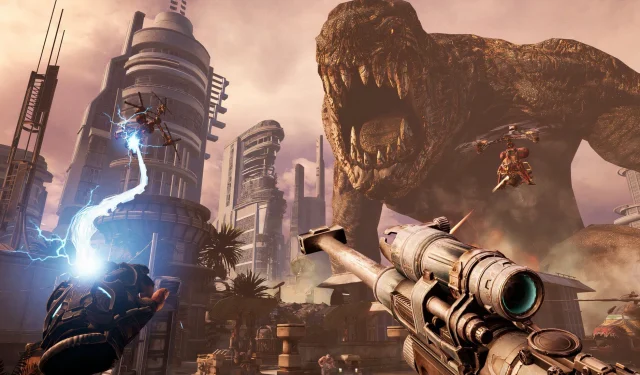
Overview of Recent Layoffs in the Gaming Industry
- People Can Fly has announced layoffs affecting over 100 employees, citing “external market pressures.”
- Projects such as Project Bifrost and Project Victoria have been significantly impacted by these changes.
- Current trends predict ongoing layoffs in the gaming sector through 2025, as companies continue to streamline operations.
People Can Fly, a notable game development studio, recently disclosed the termination of over 120 staff members, a decision that raises concerns as the year winds down and the holiday season approaches. This announcement comes shortly after the studio’s attempt to strengthen its position following previous layoffs earlier in the year.
Known for its title Outriders, which garnered a mixed reception but attracted over three million players shortly after its release in 2021, People Can Fly has experienced both highs and lows. The studio expanded its portfolio by acquiring Incuvo and launching titles like Green Hell VR in 2022, followed by Bulletstorm VR in early 2024. However, the cancellation of Project Dagger earlier this year indicated challenges ahead.
In a recent statement on social media, CEO Sebastian Wojciechowski addressed the layoffs, emphasizing that the choice was driven by “external market pressures.”He also confirmed the scaling back of Project Bifrost and the suspension of Project Victoria. Wojciechowski highlighted the studio’s commitment to support those affected by the layoffs, assuring that resources would be made available to assist them during this transition.
Important update from Sebastian Wojciechowski, CEO. pic.twitter.com/UeDV97zEoB — People Can Fly (@PCFPeopleCanFly) December 10, 2024
The Broader Impact of Layoffs in Gaming
The feeling of support may be fleeting for those who remain with People Can Fly, given the extensive wave of job cuts sweeping across the gaming industry in 2024. This year, the studio initiated layoff proceedings that began with over 30 positions. They are not alone; several gaming entities, ranging from indie developers to major players, have faced similar fates. Microsoft, for instance, laid off more than 600 employees from its Xbox division, while Bungie cut over 200 positions. Additionally, peripheral manufacturers like AMD and Corsair have also downsized their workforce.
As 2025 approaches, analysts and industry experts are predicting that job losses will persist. Proposed tariffs pose potential challenges for gaming companies, potentially raising costs and affecting sales dynamics. Despite forecasts predicting growth in video game revenue through 2028, the industry is navigating through significant turbulence driven by factors like mismanagement, excessive hiring, disappointing sales, and pressing shareholder demands. Many game developers are reassessing their career paths, leading some to exit the gaming scene entirely in search of more stable employment opportunities.




Leave a Reply